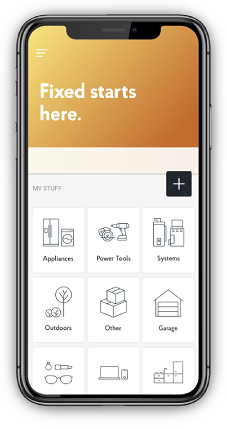Gas vs. Battery Powered Leaf Blowers: Which are Better, And Why?
If you are in the market for a new blower, one of the first questions you might ask yourself is: should I go with gas- or battery-operated? We took it upon ourselves to put them head to head! To make your decision more well-informed, check out some common questions we put to the test, and what we concluded.
For years, the gas-powered leaf blower has been the standard; they are powerful, portable, and relatively inexpensive. Over the years however, electric leaf blowers have carved their way into the market and given people an alternative to gas and battery powered units and have become quite popular.
Which one will last longer?
We conducted a performance-based test on our gas-powered leaf blower. With a quarter of a tank of fuel, we ran it for as long as it would last. The blower died after 15 minutes. The power was excellent, and we were able to get a very large area done in that 15 minutes.
When we did the same test using a battery-powered motor (1/4 battery life), it lasted 11 minutes, which was not quite as long as the gas-powered model, but it was still noteworthy. It also did not have quite the same power as the gas-powered model, but we were still able to get a relatively good sized area done.
We concluded that a battery-powered blower would be good for certain applications, such as a smaller property with fewer leaves. However, if you have a large area with an abundance of leaves, you will save time by using a gas-powered blower.
Which one has more power?
When we put these two blowers to the test, we concluded that the gas blower had more power than the battery-operated blower. It was able to blow more leaves from a stationary position, twice as far, and a lot faster than the battery-operated blower. If you need a higher-performance model, you will want to go with the gas-powered.
How fast can each one clear the same size area?
We know the gas-powered blower has more power, but we put them head-to-head to see, in real time, how long it takes to actually clear a designated area. After mapping out two areas with the same amount of space and leaves, we put them to the test. After blowing the first space with the gas-powered blower, we were able to clear the leaves in 49 seconds, and the area was well-cleared.
Using the battery-powered blower, the same clearing job took about 2 minutes and 30 seconds, so over 3 times as long versus the gas-powered blower. It also did not clean up as nicely, leaving behind a few more leaves. In terms of power, speed, and performance, the gas-powered unit had the advantage.
Noise
Typically, gas-powered engines are noisier than electric, but we tested them side by side, to do our own comparison. As expected, the gas-powered unit was much louder. We highly recommend wearing ear protection during the operation of a gas-powered blower.
The battery-powered blower was much quieter in comparison, sounding much more like a vacuum cleaner. Ear protection when operating a battery-powered blower is much less necessary.
Ease of Use
Starting: The gas-powered blower is a little more complicated to get started than the battery-powered blower. It requires a choke, primer button, and a pull start. A battery-operated blower just requires a simple insertion of the battery and a pull on the trigger. If you are looking for an easy start, this round goes to battery-operated.
Weight: You might assume that the battery-powered unit would be significantly lighter in weight than the gas powered, but you would be surprised to learn that, although the gas-powered unit is a little heavier, the difference is very slight. They have similar weight distribution, so they are both comfortable to use in terms of handling. This round is a tie.
Maintenance: Gas-powered equipment requires a little more maintenance than most battery-operated tools, in general. For example, you will need to do an annual tune up on the engine, clean the carburetor, and you will need to have the proper mix of gas on hand. If you do need to do a tune-up on your gas powered blower, we have thousands of blower parts for all major brands in stock!
A battery-powered unit does not require a lot of maintenance, it basically just requires you to charge the battery, plug it in, and go. The main problem is that if you are not covered under warranty, chances are the local repair shops will not know how to fix something like this, whereas gas powered models are very easy to work on. This round depends on your preference – do you prefer less maintenance or easier repair options?
Overall, in terms of performance the gas powered still reigns supreme. If you have a large property with a lot of leaves this is probably the choice for you. However, if you have a small property with not a lot of leaves and are looking for ease of use, the battery power blower is a perfectly good option too.























































